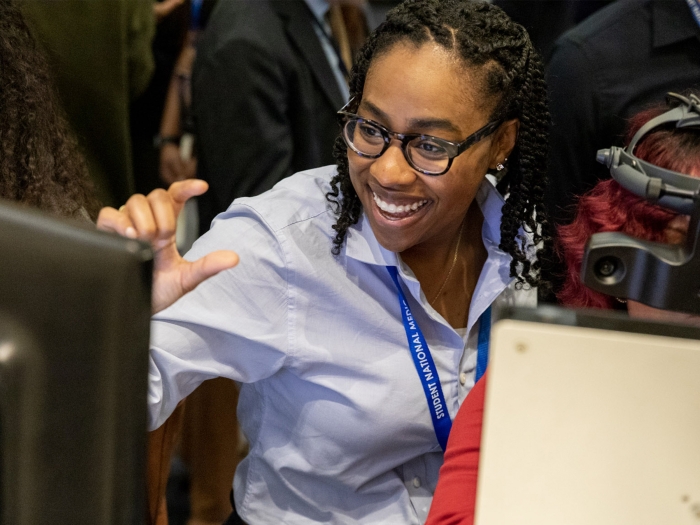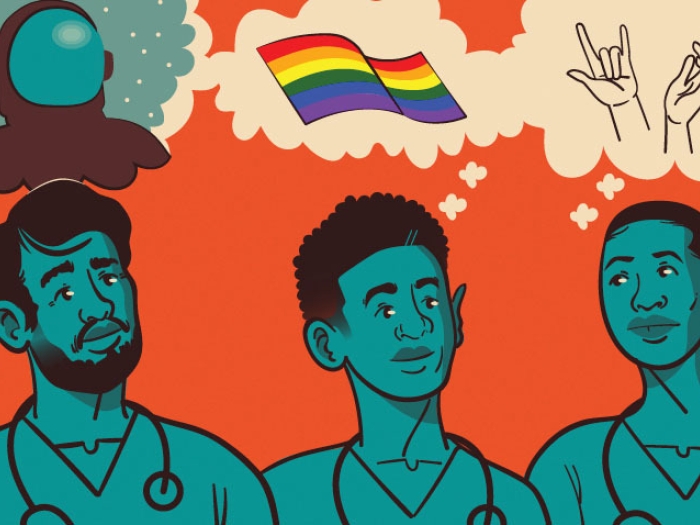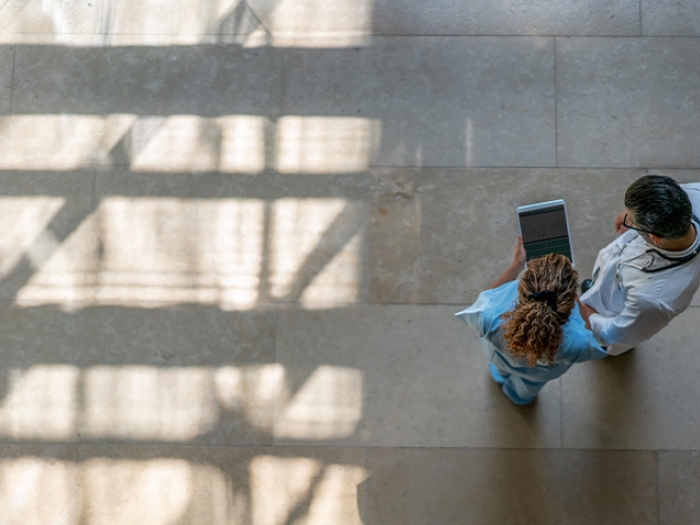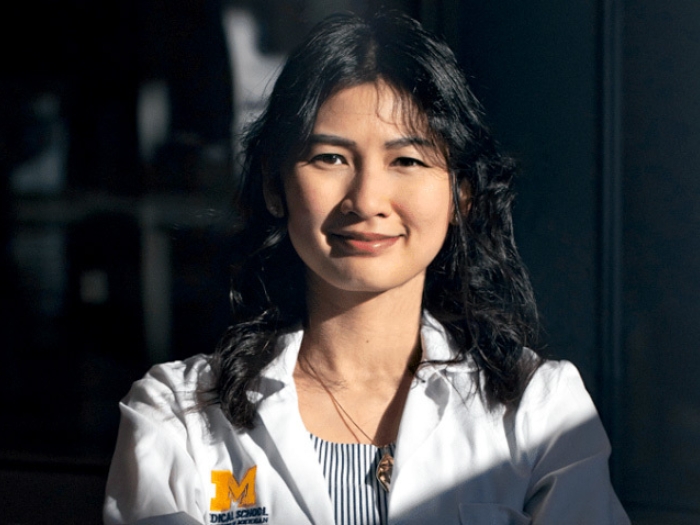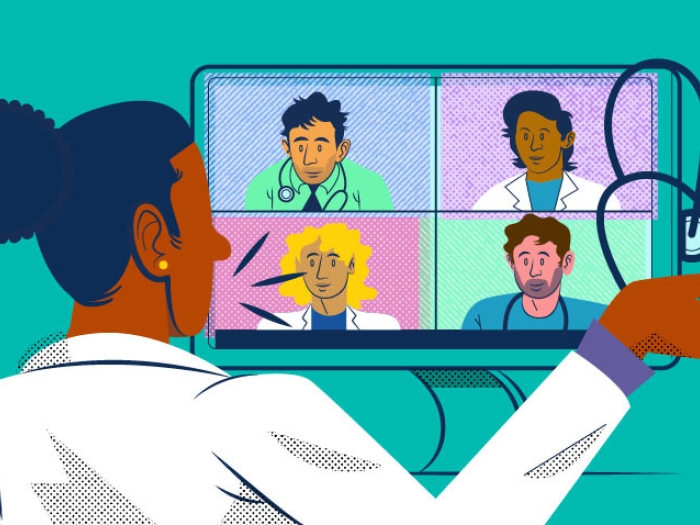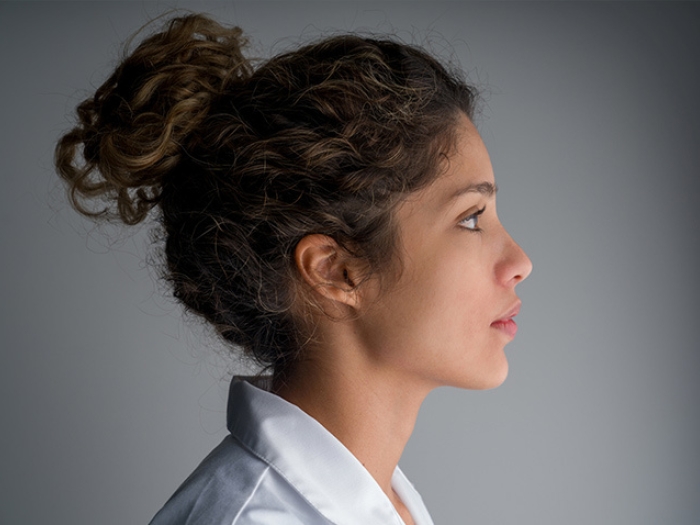A 4th-year medical student looks back on her four years at Michigan.
11:22 AM
Author |
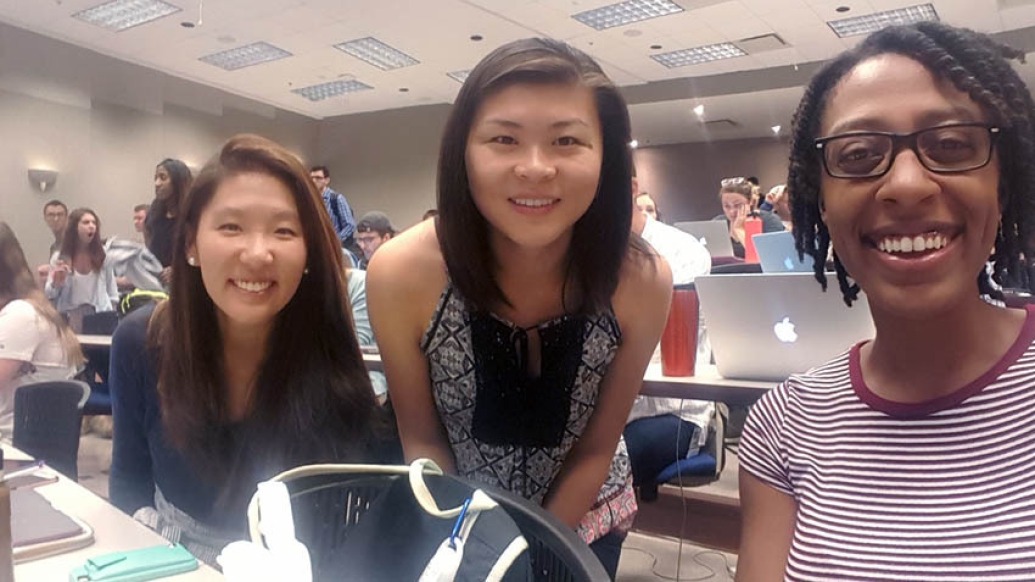
On August 7, 2017, I settled into my seat in a packed lecture hall, took out my shiny new laptop and nervously listened to the course director's introduction.
We would cover, they said, a full semester's worth of undergraduate biochemistry, genetics and cellular biology in the next six weeks. "Get excited!" the professor chirped.
Two hours later, I excused myself from the lecture hall, shell-shocked. How could I feel so overwhelmed on the very first day?
I made my way to the medical student lounge, flashing my badge at the card reader as I had seen other students do. Nothing. I tried again. A flashing red light insisted that I had no right to enter.
I stood frozen in the hallway, needing a reality check. Was I a medical student? Was it possible that the last few weeks of moving, unpacking and orientation had all been a delusion? I had heard of imposter syndrome, but maybe I was the exception: an actual imposter.
Like Podcasts? Add the Michigan Medicine News Break on iTunes, Google Podcast or anywhere you listen to podcasts.
That first day of medical school is etched into my brain. I can laugh about it now—of course I wasn't an imposter; I was just a student with a faulty ID badge—but I remember the feelings of those first few weeks acutely: I remember sighing with relief when I took (and passed!) my first quiz. I remember how my head felt impossibly full, brimming with biochemical pathways and genetic disorders and new medical vocabulary. I remember making friends, relieved to find that my classmates, brilliant and talented though they were, also wondered how to adapt to this new life.
My memories of those first weeks are so vivid that I have a hard time believing that they took place almost four years ago.
Where we've been
At the University of Michigan, all students spend the first two years of medical school, called the Trunk, on the same pathway—first in the classroom, then in Michigan Medicine's hospitals and clinics. The latter part of our education, called the Branches, is more customizable: students choose their clinical rotations and have time to pursue individual interests in public health, education, research, advocacy, or whatever else draws their attention.
The last year of medical school is mostly spent planning to leave—that is, applying for residency. It's a lot like applying to medical school: researching programs, writing personal statements, requesting letters of recommendation, and obsessively hitting the email refresh button.
After applications come interviews. This year, that meant spending many days in my apartment, staring down the barrel of a webcam and ring light, hoping that my best suit, brightest smile and carefully chosen words demonstrated that I was ready to take care of patients as a bona fide doctor.
MORE FROM THE LAB: Subscribe to our weekly newsletter
Where we're going
Now, my class has finished interviews. We've submitted our rank lists and are awaiting Match Day: the annual event on the third Friday of March when fourth-year medical students across the country find out where they will be going for their residency training.
Keeping us occupied in the meantime is the Residency Prep Course curriculum. These courses are 4- or 8-week rotations designed to give us knowledge and skills that will come in handy when we start residency this summer. There rotations are in pediatrics, internal medicine, procedures (surgical specialties and anesthesia), obstetrics and gynecology, family medicine and emergency medicine.
I'm in the Procedures Residency Prep Course, which has covered topics like post-operative pain management, advanced trauma life support and ventilator management, as well as refresher sessions on a variety of disciplines such as cardiology, pulmonology, endocrinology, obstetrics and neurology. I've been able to work on practical skills like suturing, ultrasound and casting. We also field "mock pages," in which we communicate with nurses about problems that arise with a set of (imaginary) patients who are under our care. Not all medical schools offer these prep courses, but I've appreciated the opportunity to hone my skills a bit before this summer.
SEE ALSO: 8 Ways to Make Your Medical School Application Shine
One of my favorite parts of medical school has been watching the evolution of my peers. While some students matriculate with a clear vision of their future career, many of us come to medical school with no particular specialty in mind. Now, when I look at my classmates, I see radiologists and pediatricians, internists and dermatologists, neurologists and anesthesiologists.
I have loved watching us change from timid first-year students into confident, unique and thoughtful soon-to-be physicians. Despite our early anxieties and missteps, my classmates and I did ultimately adapt to our lives as medical students. Even though it's hard to believe that those lives are soon coming to an end, the next chapter for us is just beginning.

Explore a variety of healthcare news & stories by visiting the Health Lab home page for more articles.

Department of Communication at Michigan Medicine
Want top health & research news weekly? Sign up for Health Lab’s newsletters today!
